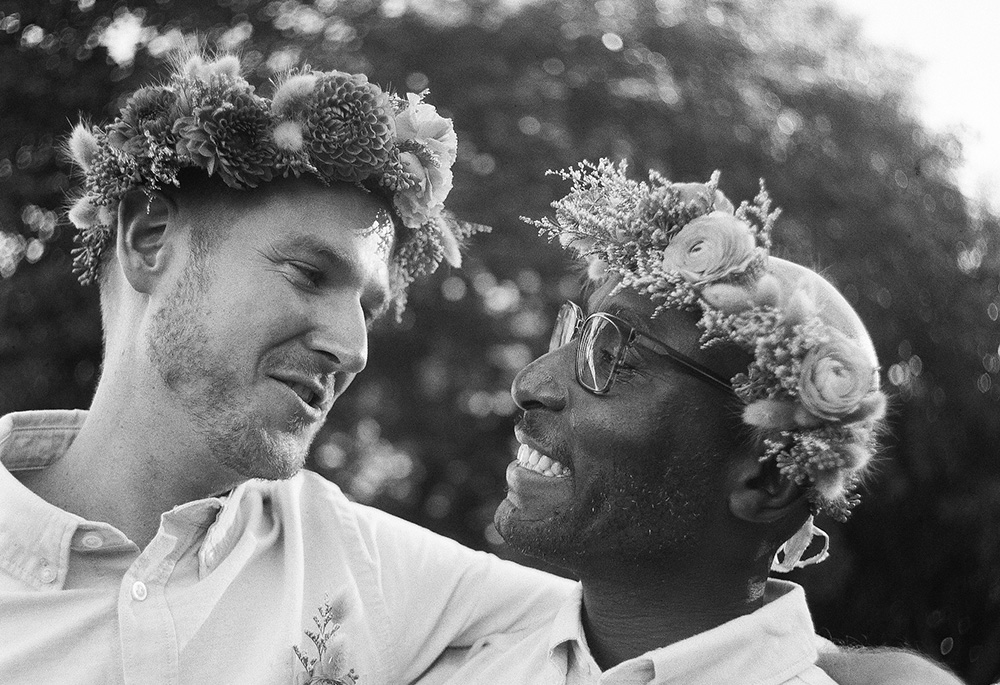
(Pixabay/LollipopPhotographyUK)

With the release of Fiducia Supplicans in December 2023, the Vatican permitted Roman Catholic priests to bless same-sex couples. The announcement scandalized many traditionalists, but it came with an important caveat: under no circumstances should the blessings resemble a wedding ceremony. For Pope Francis and others committed to traditional church teaching, sacramental marriage is only open to heterosexual couples who enter a lifelong, monogamous covenant.
Church leaders say that nothing can change the traditional definition of marriage because it stems from God's plan for creation and was confirmed by Jesus himself. In the Catholic movement for LGBTQ affirmation and pastoral care, many of the most visible and committed allies dare not cross what has become a clear doctrinal red line.
Bridget Burke Ravizza's recently published work, The Sacrament of Same-Sex Marriage: An Inclusive Vision for the Catholic Church unsettles supposedly settled doctrine. Burke Ravizza is a Catholic ethicist and professor of theology and religious studies at St. Norbert College who researches grassroots Catholic ethics of sex, marriage and family life. Based on her research, Burke Ravizza concludes that same-sex marriages "build families and communities that are stable and marked by virtue — contributing to the common good, to church and society. They recognize and celebrate experiences of grace in their daily lives. … De facto, they are sacramental."

(Pixabay/briannad26)
Inspiration for The Sacrament of Same-Sex Marriage came from Burke Ravizza's earlier work, Project Holiness: Marriage as a Workshop for Everyday Saints (co-authored with Julie Donovan Massey), which focused on the experiences of straight married couples. Why not interview gays and lesbians as well? Although many Catholic ethicists have considered same-sex couples as a theological issue, few have paid close attention to their daily lives and lived faiths. Burke Ravizza remedies this gap in the scholarship by conducting 22 in-depth interviews of married same-sex couples who "have a meaningful connection to the Catholic tradition."
Burke Ravizza employs sound social-scientific method, but also masterfully weaves theology into every discussion. Her incorporation of themes such as synodality, sacramentality and sanctuary make the book thoroughly Catholic, and it could serve as a well-resourced introduction to evolving Christian understandings of church, marriage and sexuality. But Burke Ravizza's theology also depends on careful listening, dialogue and relationship-building, skills that the rest of the church would benefit from. Her goal is to amplify and reflect on the stories of same-sex couples, not to challenge or deny them.
Burke Ravizza employs sound social-scientific method, but also masterfully weaves theology into every discussion.
The gay and lesbian couples interviewed tend to be white and well-educated, a limitation of the study that Burke Ravizza acknowledges. Even with such sources of privilege, homophobia is an ongoing challenge for most partnerships. We might wonder what marriage and the Catholic Church mean to those who are even more marginalized by society and the church, or if these institutions are meaningful to them at all.
At the time of the interviews, most of the married couples had already been together many years, a sign of hope for LGBTQ people who may struggle to find and remain in healthy partnerships. No matter their proximity to the institutional church, interviewees offered compelling reflections on their marriages in light of Catholic tradition. At times I found myself questioning how representative the couples were, since their witnesses seemed too good to be true. But the book was a helpful reminder that I should not be so surprised by God's work in the LGBTQ community, or my own life: Burke Ravizza's book was the first time I have seen echoes of my own marriage so purposefully represented in Catholic theology, and I won't soon forget it.

Jason Steidl Jack and Damian Jack are pictured on their wedding day in 2022. (Wiafe Mensah-Bonsu)
The Sacrament of Same-Sex Marriage is divided into five chapters. The initial two chapters provide the core of the book's argument and explore same-sex marriage as a sacrament, first between the partners themselves, and then between the couple and the rest of the world. Chapter 3 highlights the ways that gay and lesbian partners navigate family situations with less-than-affirming family members. Chapters 4 and 5 provide insight into gay couples' relationships to the Catholic Church and Catholic institutions. No one should be surprised by how precarious and challenging — but also grace-filled and abundant — gay and lesbian participation in Catholic community can be.
Each chapter includes copious citations of interviewees' own words. Burke Ravizza gives the book its framing but uses the experiences of married gay couples as its brick and mortar. This theological method is a useful foil for Vatican dogmatism, which often theologizes from above and presumes the sinfulness of same-sex partnerships without bothering to ask where God is moving in LGBTQ lives.
Advertisement
I would recommend The Sacrament of Same-Sex Marriage to several audiences.
First, it is a bright light for young LGBTQ Catholics and their families, who may need assurance that being gay is not a spiritual or relational death sentence. Indeed, Burke Ravizza proves that same-sex couples can flourish in healthy marriages wherein faith is a source of inspiration and strength.
Second, this book opens a useful discussion for couples discerning marriage. As parishes develop resources for LGBTQ ministry, it would serve as an excellent complement to pre-Cana counseling.
Third, it is a must-read for those interested in ministry with the LGBTQ community. Although married same-sex couples are a small minority in most parish groups, they are a growing constituency, and Burke Ravizza does a masterful job illuminating their spiritual gifts and needs.
Fourth and finally, I strongly urge those who deny the possibility of same-sex marriage to read The Sacrament of Same-Sex Marriage. Like the unions it highlights, Burke Ravizza's work is moving, grace-filled and sure to provoke further dialogue on one of the church's most taboo subjects. In reading, opponents might discover that the real scandal is their refusal to acknowledge the sacrament that is so evident to everyone else.




